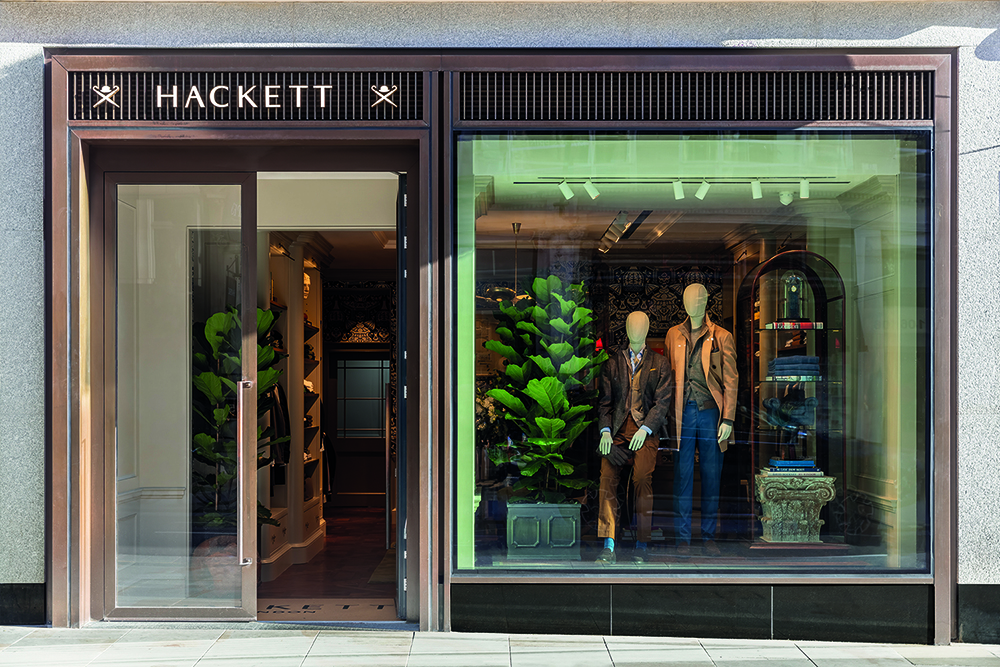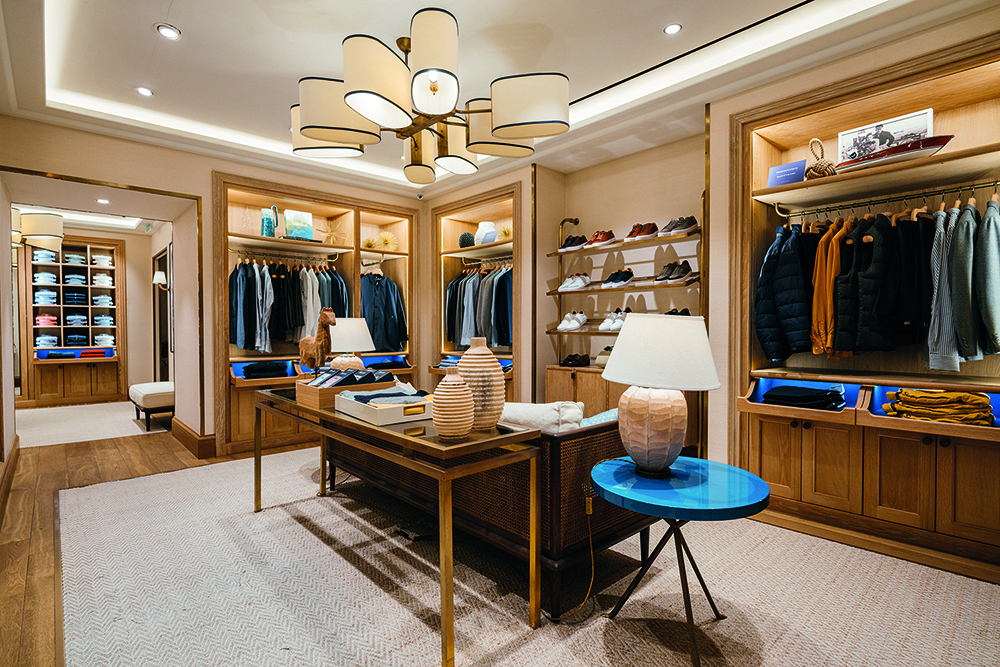
Pushing the Limits
The global fashion group behind iconic brands Pepe Jeans London, Hackett and Façonnable, AWWG has carved out a strong identity at the intersection of heritage, innovation and international expansion. In this exclusive interview in the company of CEO Marcella Wartenbergh, she shares insights into its growth strategy, evolving consumer connections and vision for shaping the future of the business.
Stepping into her role in 2019, just before a period of unprecedented change for the industry, Marcella began life as CEO by building a unified platform where all brands in the portfolio would focus on transformation and brand equity. Then, after 100 days, she launched a 360-degree clear vision called “re:set”, where they focused on five priorities: brand, product, distribution, digitisation and people. Next, the pandemic hit.
“I needed to rework my priorities and focus on reacting as per needs: fast, organising ourselves remotely and learning to navigate a reality no one could have predicted,” highlights Marcella Warternbergh, CEO of AWWG.
“But out of that came something powerful, an incredible sense of connection and teamwork across the company. It was a moment that shaped my leadership style and reinforced the importance of adaptability and trust.”
At AWWG, success comes from recognising that each brand requires a tailored approach. A portfolio thrives not by treating all brands the same, but by protecting their individual identity while unlocking the right synergies across the group.
Operating the iconic names of Pepe Jeans, Hackett and Façonnable, what connects them is not a single identity, but a shared platform that enables each brand to shine individually while benefiting from the collective strength of the group. This foundation is built on their values and powered by the strength of their capabilities in operations, digital and global distribution.

“Preserving brand identity is non-negotiable. Each of our brands has its own DNA, history and customer and our role is to protect that uniqueness while providing the scale, tools and expertise to accelerate growth,” comments Wartenbergh.
When she first arrived at AWWG, the CEO described wanting to build a “people-first” business and for her, it is not just a slogan, it is how they run the company on a daily basis. It means listening, being close and giving people the chance to grow.
“It also means surrounding yourself with the best people, building trust and making sure we work together with inclusivity and respect. I believe leadership is about passion and values, not just strategy. This is what creates a culture where talent can thrive and the business can grow.”
Discussing the company and its distinct brands, it becomes apparent that sustainability is no longer a trend and it is something that customers expect from the company and it pushes the whole industry to act with real responsibility.
What AWWG is seeing with Hackett and Pepe Jeans reflects how menswear and denim are changing. Hackett is proving that classic British style still has enormous appeal, but that it works best when it evolves. The brand has been able to grow across different segments, from the formality of Savile Row to more relaxed and sport-inspired ranges, connecting with today’s man who wants versatility without losing sophistication.
Pepe Jeans, meanwhile, is embarking on a different yet equally important journey. The “Pepe Evolution” goes far beyond denim, moving into a complete lifestyle proposition. That means expanding into outerwear, tailoring hybrids and premium basics, while also rethinking fits and silhouettes, embracing sustainability and leaning into digital channels where younger consumers live.
Finally, for a brand like Façonnable, it comes with a remarkable history, powerful story and a real responsibility. For Marcella, the lesson is that you can only bring it back if you stay true to its roots. In this case, that means going back to Nice and the Côte d’Azur, drawing from the archives and reworking fabrics, trims and details in a way that feels new but still authentic.


“It is not about recreating the past; it is about making it relevant. The aim is to translate that history into a timeless wardrobe that reflects elegance and tailoring, with the design and quality people expect. When you do that, you realise a heritage brand can feel fresh again while keeping the spirit that made it unique in the first place,” Wartenbergh explains.
Their ambition moving forward is to keep building on the foundation they have, expand their footprint and create long-term value for their brands stakeholders. They work with suppliers and stakeholders who share these values and build relationships based on mutual trust and transparency.
As consumers of today are increasingly focused on “smart” purchases rather than fast fashion, how does AWWG respond to this?
“People no longer want clothes that feel disposable, they want pieces that last, reflect their values and still inspire them. For us, it is about combining timeless quality with fresh creativity and making sure our brands connect with every generation, from Baby Boomers to Gen Z,” Wartenbergh responds.
“It also means going beyond the product. We put a lot of care into the experience we create in our stores, into the service, the atmosphere and the way we make people feel when they walk in. And of course, our teams are key. The diversity of perspectives with AWWG helps us to understand what customers really want and create experiences, online and offline, which make sense for them. That is how we build real connections and that is why this shift in mindset is an opportunity for us,” she concludes.





